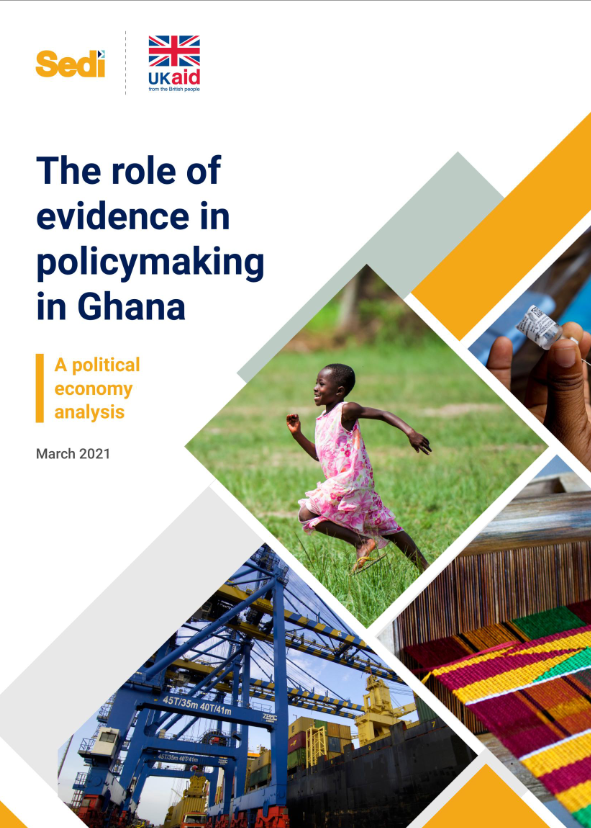Research shows that evidence-based policymaking generally results in more effective and responsive policies. But across Africa, lawmakers are faced with a difficult question: what’s the best way to incorporate sound data and research, either generated within or outside government structures, into the policymaking process?
This diagnostic report analyzes the political economy of policymaking and the evidence ecosystem in three sectors in Ghana: economic development, public financial management, and health. The report identifies key opportunities and constraints related to the use of evidence in policymaking in each sector, and highlights the potential for SEDI to deliver politically smart interventions that would increase the use of evidence by policymakers over the next four and a half years.
Download Executive Summary Read Executive Summary
Download Learning Brief 1 Read Learning Brief 1
Download Learning Brief 2 Read Learning Brief 2
Authors
Julius Gatune and Richmond Commodore
Economic development:
Robert Darko Osei, Kirchuffs Atengble, Daniel Harris
Public financial management:
Robert Darko Osei, Eric Fosu Oteng-Abayie, Nirav Shah
Health:
Kobina Atta Bainson, Ama Fenny, Christian Osei, Anna Rosengren
Overarching advice was provided by Dr Edward Brown (ACET); Daniel Harris, Susan Njambi-Szlapka, Carmen Leon-Himmelstine, Alina Rocha Menocal, and Louise Shaxson (ODI); and Emily Hayter and Clara Richards (INASP).



